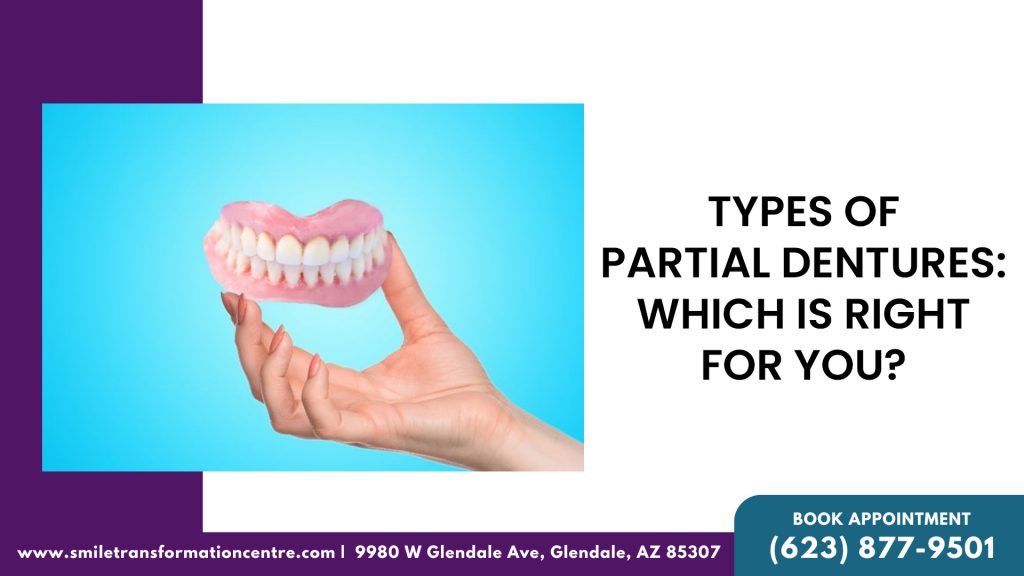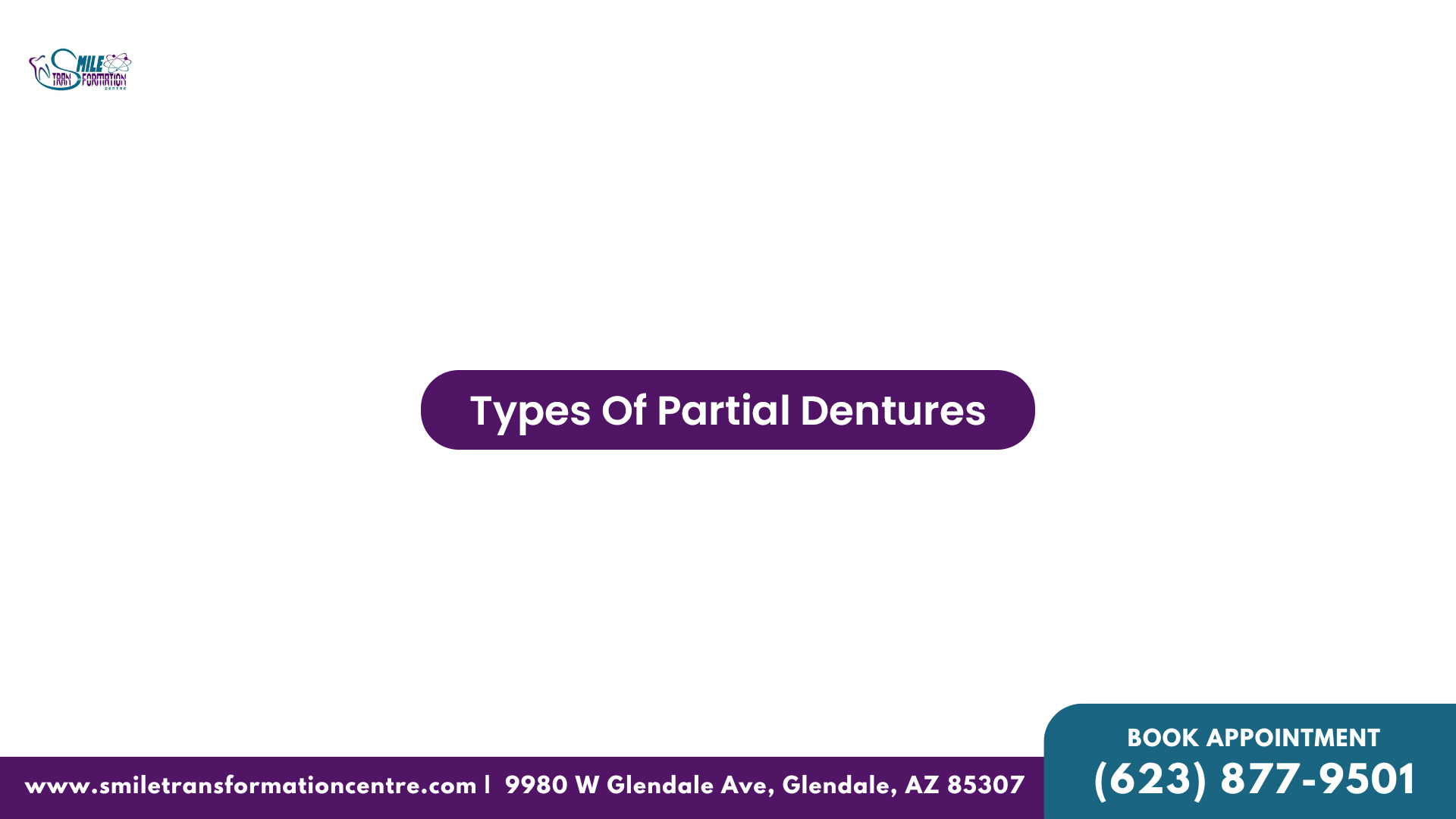When teeth are lost due to various reasons such as decay, injury, or periodontal disease, it can significantly impact your quality of life, making essential activities like eating and speaking more challenging. Not only that, but missing teeth can also affect self-esteem. Fortunately, partial dentures provide a reliable solution to restore both functionality and aesthetics.
Why Partial Dentures?
Partial dentures serve various crucial functions beyond merely filling the gaps in a smile. They support oral health by:
- Preventing the remaining natural teeth from shifting, which can lead to misalignment and additional dental complications.
- Restoring full chewing ability and enhancing spoken communication.
- Helping maintain the structure of the jaw and facial profile.
- Offering a natural appearance that boosts confidence.
Without intervention, the consequences of missing teeth can lead to significant oral health complications. Partial dentures are a practical choice for those looking to preserve their smiles while ensuring overall dental function.
Types Of Partial Dentures
Understanding the various types of partial dentures available can help you choose the most suitable option for your lifestyle and dental needs. Here are the primary types:
Acrylic Partial Dentures
Acrylic partial dentures are often the most affordable option. They feature a pink acrylic base that supports artificial teeth and are frequently recommended for those in need of temporary solutions.
Pros
- Cost-effective
- Easily adjustable to accommodate future tooth loss
Cons
- Typically bulkier and less durable than other options
- May require replacement every few years
Cast Metal Partial Dentures
These dentures consist of a metal framework surrounding acrylic resin and artificial teeth, making them one of the most durable types available.
Pros
- Highly durable, often lasting 5-10 years or more
- Thinner design that offers excellent stability during chewing
- Precise fit that reduces pressure on natural teeth
Cons
- Higher initial cost
- Metal clasps might be noticeable
Flexible Partial Dentures
Made from thermoplastic materials, flexible partial dentures are known for their comfort and aesthetics.
Pros
- Lightweight and comfortable
- Blends seamlessly with natural gums
- Less pressure on remaining teeth
Cons
- Moderate durability compared to metal options
- Higher initial cost than acrylic dentures
- Adjustments can be challenging
Implant-Supported Partial Dentures
For those looking for a longterm, secure solution, implant-supported dentures are an excellent choice. These dentures are anchored to dental implants, providing unparalleled stability.
Pros
- Highly functional and aesthetically pleasing
- Minimizes movement and provides a natural feel
- Long-lasting
Cons
- Requires a surgical procedure and significant financial investment
- The process may take longer for complete treatment
Combination Partial Dentures
This option combines the strengths of both metal frameworks and flexible materials, providing enhanced strength and comfort.
Pros
- Balanced comfort and durability
- Enhanced aesthetics compared to traditional designs
Cons
- More complex fabrication process
- Higher cost due to advanced materials used
Criteria For Selecting The Right Partial Denture
Selecting the best partial dentures involves weighing several important factors. Consider:
- Durability And Longevity: – The lifespan of different materials varies. Metal and implant-supported options generally offer superior durability, while acrylic options are more affordable but may require frequent replacement.
- Comfort And Fit: – An ideal fit is crucial. Flexible partial dentures often adapt more comfortably to the mouth’s contours, while metal frameworks provide stability.
- Aesthetic Appeal: – Consider the visibility of clasps and the overall look of the dentures. Flexible and implant-supported options typically offer more natural appearances which is important for many.
- Budget And Affordability: – Prices can vary widely. Acrylic dentures are cost-effective, while metal and implant-supported models require more investment upfront but usually deliver longterm benefits.
How To Make The Final Decision?
A consultation with a dental professional is essential for determining the best option regarding partial dentures. During a visit, the dentist will:
- Conduct a thorough oral examination to assess the health of remaining teeth and gums.
- Discuss individual needs and aesthetic goals to tailor a treatment plan.
- Inform about the benefits and considerations of each type of denture.
- Provide the opportunity for a trial fitting or mock-up to ensure satisfaction with the selected option.
At Smile Transformation Centre, patients discover a perfect blend of advanced dental technology and care when seeking partial dentures. Our expert team specializes in creating custom dental prosthetics tailored to individual needs, using premium materials that balance comfort, durability, and natural aesthetics.
Choosing The Right Partial Dentures For You
In summary, the journey to finding the right partial dentures involves understanding the different types available, their associated benefits, and your needs. Factors such as durability, comfort, aesthetics, and budget all play vital roles in decision-making. Choosing the best option can significantly enhance daily life, enabling you to eat, speak, and smile with confidence. Leveraging professional dental advice ensures the selection of dentures that will not only look good but also function effectively in the long run.



